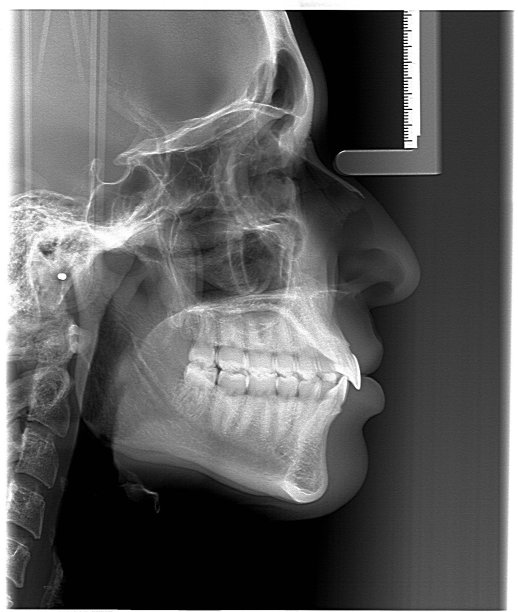Summary: Root canal treatment is often perceived as daunting, yet understanding its nuances can lead to a successful and stress-free experience. This article delves into essential guidelines and precautions that contributors, from patients to dental professionals, should consider. Covering aspects such as preparation, choosing the right practitioner, understanding the procedure, and post-care instructions, this comprehensive guide aims to transform apprehension into confidence. By focusing on these pivotal areas, readers can ensure a more effective treatment experience that alleviates fears and promotes optimal oral health.
1. Importance of Preparation Before Treatment

Preparation is crucial for ensuring a successful root canal treatment. First, understanding the reasons behind the need for the procedure can help alleviate any anxiety. Patients should familiarize themselves with the signs and symptoms indicating a root canal may be necessary, such as persistent pain or swelling. Having this knowledge can empower patients to take prompt action.
Additionally, dental consultations before the procedure are vital. A thorough examination allows the dentist to assess the extent of the issue. Patients should openly discuss their medical history and any medications they take. This dialogue ensures that the dentist is equipped with all necessary information to manage the treatment effectively.
Lastly, patients are encouraged to consider their dietary choices before the appointment. Eating a light meal can help maintain comfort during the procedure, but avoiding potential irritants such as strawberry jam or spicy food is advisable to minimize discomfort immediately afterward.
2. Choosing the Right Dental Practitioner
Selecting the right dentist or endodontist significantly influences the outcome of a root canal treatment. Researching practitioners’ qualifications, experience, and reviews is essential. A skilled endodontist with expertise in performing root canals can instill confidence and reduce anxiety.
Moreover, consider the technological resources available at the dental clinic. Advanced equipment, such as digital x-rays and operating microscopes, can enhance precision during the treatment. Patients should feel free to inquire about the technology used, as a modern approach often correlates with improved patient experiences and outcomes.
Trust also plays a significant role in choosing a practitioner. It is essential to select a dentist with whom the patient feels comfortable. This relationship can foster open communication and provide reassurance during the procedure. Inquire about the dentists approach to pain management as well—discussing options beforehand can immensely alleviate fears.
3. Understanding the Root Canal Procedure Itself
Becoming well-informed about the root canal procedure helps manage expectations. Essentially, the dentist begins by numbing the affected area, ensuring that the patient experiences minimal discomfort during treatment. Explaining the steps involved can demystify the process and relieve anxiety.
During the procedure, the dentist removes infected tissue from within the tooth, thoroughly cleans the interior, and seals it to prevent future infection. Patients should be prepared for the duration of the procedure, which can range from one to two hours, depending on the complexity of the case.
Injecting humor into the situation can lighten the mood. Dentists often have amusing stories from their practice, which can create a more relaxed atmosphere. Encouraging patients to engage with their practitioners during the process can serve as a distraction and alleviate feelings of apprehension.
4. Post-Care Instructions for Optimal Recovery
Post-care is a critical aspect that significantly influences recovery following root canal treatment. Patients should have a clear understanding of aftercare instructions provided by the dentist. Simple guidelines like avoiding hard foods for a few days can prevent unnecessary stress on the tooth.
Additionally, managing pain post-treatment is essential. Dentists often prescribe medications or recommend over-the-counter options to help manage discomfort. It’s crucial to follow the specified dosages and recommendations to ensure a smooth recovery process.
Monitoring the treated area for any signs of complications, like increased pain or swelling, is also essential. Patients should not hesitate to reach out to their dentist if any concerns arise. Preventative measures and vigilance can forestall further complications and support a swift return to normal activities.
Summary:
In conclusion, proper preparation, selecting the right practitioner, understanding the root canal procedure, and adhering to post-care instructions are essential for a successful root canal treatment experience. By following these guidelines, patients can significantly reduce anxiety and promote effective healing.
This article is compiled by Vickong Dental and the content is for reference only.
Vickong Dental
Vickong Dental is a large medical group established in Hong Kong in 2008 by professors from well-known medical universities in Guangdong and Hong Kong, as well as medical doctors from key national '985' universities (including Master's supervisors and senior professors). The chain of branches brings together expert dentists with PhDs and Master's degrees from Hong Kong and Mainland China, committed to providing high-quality dental treatment.
"Vickong Dental Practices the University Motto of 'Healing and Serving Society,' with a Stable Operation for Sixteen Years. It Has Been honored with Hong Kong Enterprise Leaders's Choice,' and is a Global Trusted Implant Center for the Nobel Implant System. Recommended by Hong Kong Metro Broadcast and Guangdong Television, it Serves Customers from Over Thirty Countries and Regions, Gaining the Trust and Favor of Citizens from the Guangdong-Hong Kong-Macau Greater Bay Area and Surrounding Cities.

Thousands of customers' unanimous praise
The most recognized and highly recommended dental service by customers in the Guangdong-Hong Kong-Macau Greater Bay Area
We Ensure You Receive Detailed Care and Attention Here
Hong Kong standards, Shenzhen prices, Your Trusted English-speaking dentists

Vickong Dental Medical-Grade Instrument Disinfection Process
Vickong Dental Medical-Grade Instrument Disinfection Process

Vickong Dental Chain: A Warm and Comfortable Environment for Treatment






Appointment Hours

Q&A
Why choose Vickong Dental?
Vickong Dental practices the university motto 「Medicine to Benefit Society」, with each branch bringing together highly qualified dentists with doctoral and master’s degrees from Hong Kong and the Mainland, and has maintained seventeen years of steady operation。Recipient of 「2024 Hong Kong Enterprise Leaders Brand」, 「2025 Hong Kong Enterprise Leaders Brand」, a Nobel Biocare Global Trusted Implant Center, and a brand recommended by Metro Radio Hong Kong and Guangdong TV。
To date, we have served customers from more than thirty countries and regions,earning exceptionally high word-of-mouth recognition and trusted recommendations from residents across the Guangdong-Hong Kong-Macao Greater Bay Area and surrounding cities
We have eight major branches in Zhuhai、Shenzhen,and a consultation and service assurance center in Hong Kong,so you can book a free consultation at any time for any questions,which is very reassuring.
If I do not accept the quotation after the CT scan, will I be charged??
No! As long as the actual treatment has not started, you will not be charged any fees.
Will there be any additional charges during the treatment process?
No, there won’t be any additional charges. Before treatment begins, we will clearly explain the treatment plan and its corresponding fees. Only after the patient agrees and signs the consent form will we proceed with the dental service.
Can I pay in Hong Kong dollars?
Yes. Vickong Dental accepts payment in Hong Kong dollars. The amount will be converted based on the exchange rate of the day, and the applicable rate will be clearly communicated to you in advance.
Can I reschedule my appointment at any time?
Yes. Please contact us via **WeChat** or **WhatsApp** as early as possible, providing your original appointment time and details, along with your preferred new date and time slot for rescheduling.













